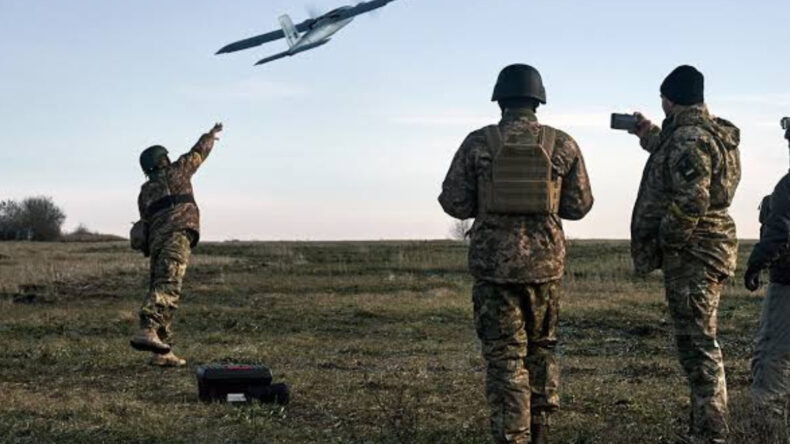
Ukraine’s President Volodymyr Zelensky issued a stern warning to Russia’s invading forces on Sunday following the overnight drone attacks on Moscow, accusing the Kremlin of being responsible for the conflict that has lasted far beyond their expectations. The President’s address emphasized the resilience and strengthening of Ukraine, stating that the war is now turning back towards Russia’s symbolic centres and military bases.
As the conflict continues to escalate, Ukrainian officials appear to be adopting a new strategy, deploying drones to strike Russian targets, particularly those who previously believed that the invasion was a distant concern. According to a spokesperson for Ukraine’s Air Force, Yurii Ihnat, the intention behind these drone attacks was to impact Russians who felt removed from the ongoing conflict. He noted that the use of drones is becoming increasingly prevalent.
The early Sunday attacks resulted in no reported injuries, but two drones managed to cause minor damage to office buildings. A third drone was intercepted and shot down by Russian forces before it could cause any harm.
The situation remains tense and complex, with both sides engaging in blame games. Russian officials accused Kyiv of orchestrating the drone strikes in Moscow and Crimea the previous week, while Ukrainian officials have not taken responsibility for those attacks. Instead, they have made it clear that these strikes are part of a broader counteroffensive aimed at driving Russian troops out of Ukrainian territory.
In his televised address, President Zelensky expressed the nation’s determination to stand strong against the invading forces. He highlighted that the conflict, now stretching over 522 days, has defied the initial expectations of the Russian leadership, who believed it would be a swift operation. Despite the prolonged duration, Ukraine remains resolute, continuing to fortify its defences and responding with innovative tactics like drone attacks.
Since Russia’s invasion, the conflict has witnessed noteworthy developments, causing the battleground to inch steadily closer to the borders of Russia. This territorial shift has showcased Ukraine’s newfound capability to confront Russian forces on their own turf, signifying a notable transformation in the overall dynamics of the war.
As Ukrainian defences grow stronger, and the conflict endures beyond expectations, it becomes evident that the confrontation has extended beyond the borders of Ukraine and is now venturing deep into the heartland of Russia. The implications of this territorial push reverberate through the geopolitical landscape, raising global concerns about the potential escalation of the conflict and its ramifications on regional and international security.
As the international community watches with growing concern, diplomatic efforts to mediate the crisis have not yielded a lasting resolution. Many countries around the world have condemned Russia’s invasion of Ukraine and have provided humanitarian aid and military support to Kyiv. However, finding a path to de-escalation remains elusive.
The recent drone attacks on Moscow further escalated tensions and could potentially exacerbate the conflict. The situation calls for a renewed push for diplomatic solutions to prevent further bloodshed and loss of life.
With the conflict entering its 523rd day, the global community hopes for a peaceful resolution to the ongoing crisis. President Zelensky’s warning to Russia and the deployment of drones by Ukraine signal a shift in the war’s dynamics, one that has the potential to impact not only the region but also international security.
As the situation unfolds, the world anxiously waits to see how the involved parties will navigate the complex geopolitical landscape and if lasting peace can be achieved. For now, Ukraine remains steadfast in its determination to defend its sovereignty, and the conflict continues to grip the attention of the world, with the implications of each action reverberating far beyond the borders of both nations involved.













